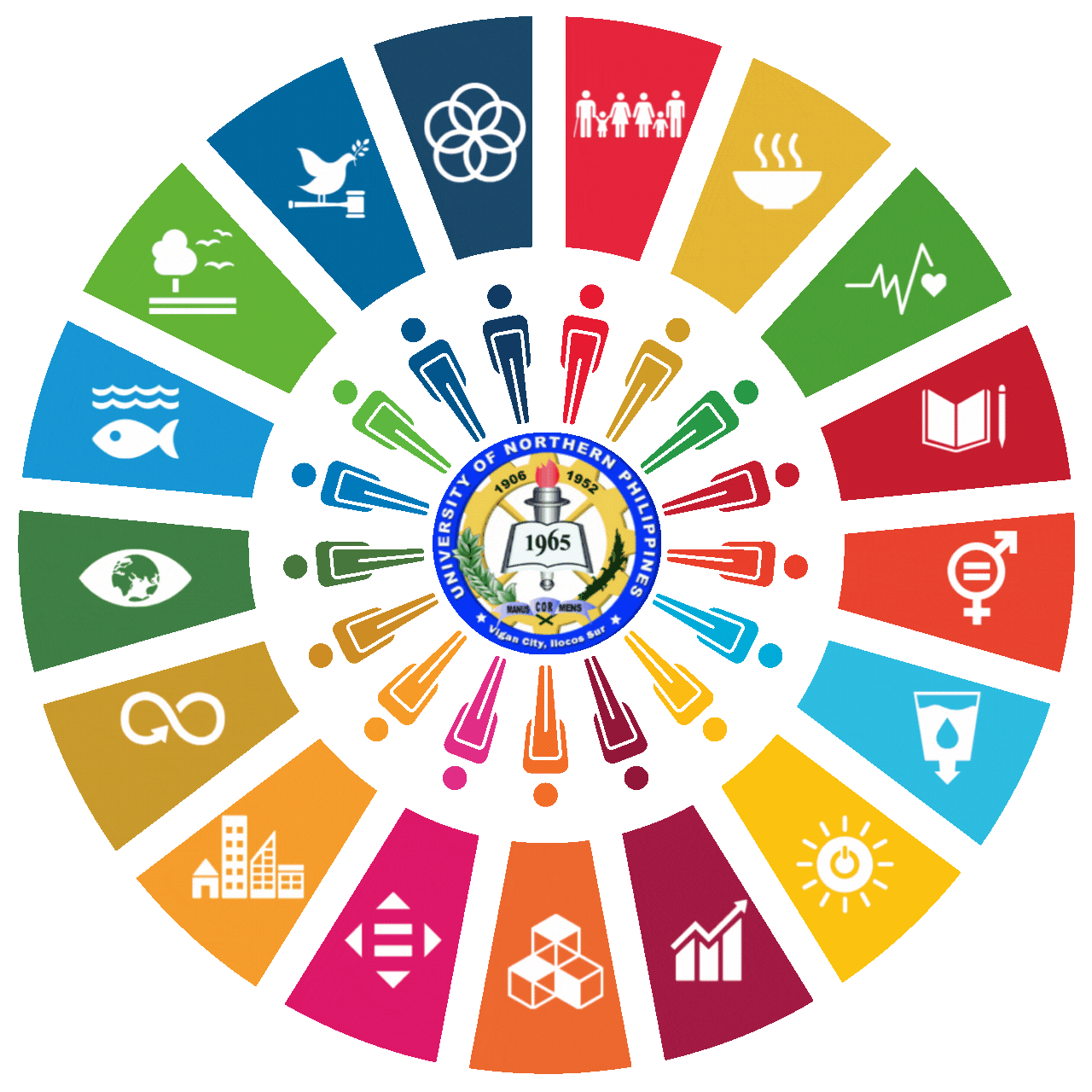

SDG 7 - AFFORDABLE AND CLEAN ENERGY
The University of Northern Philippines (UNP) is deeply committed to the United Nations’ Sustainable Development Goal 7 (SDG 7), which focuses on ensuring access to affordable, reliable, sustainable, and modern energy for all. This commitment is evident in their multifaceted approach to integrating sustainability into the university’s framework. UNP actively promotes the shift towards clean energy sources through awareness seminars and workshops, such as the one organized in partnership with the Department of Trade and Industry and the Business Management Association of the Philippines.
Furthermore, UNP fosters an innovative environment that encourages exploring future-oriented solutions. This is exemplified by the seminar workshop on “Futures Thinking,” which challenged participants to envision and plan for a future aligned with the SDGs, including projects focused on affordable and clean energy. The university also promotes digital literacy and efficiency through training programs like Microsoft 365 end-user training, which indirectly contributes to energy conservation by reducing paper usage and optimizing work processes. Through these diverse initiatives, UNP actively contributes to achieving SDG 7 and creating a sustainable energy future for all.
Empowering Consumers Through Clean Energy Transitions
UNP is committed to raising awareness about the importance of clean energy transition. In partnership with the Department of Trade and Industry and the Business Management Association of the Philippines, the university conducted a seminar on consumer protection with the theme “EMPOWERING CONSUMERS THROUGH CLEAN ENERGY TRANSITION.” This seminar aimed to educate participants about the benefits of clean energy and encourage energy-efficient choices in homes and businesses.
The seminar on consumer protection in Ilocos Sur strongly aligns with the United Nations’ Sustainable Development Goal 7, which focuses on ensuring access to affordable, reliable, sustainable, and modern energy for all. By emphasizing “clean energy transition,” the seminar promotes a shift towards renewable energy sources, directly supporting Target 7.2 of SDG 7. Furthermore, by empowering consumers with knowledge about clean energy and its benefits, the seminar encourages energy-efficient choices in homes and businesses, contributing to Target 7.3.

The seminar also indirectly supports other SDG 7 targets. Raising awareness about the importance of affordable and accessible energy solutions aligns with Target 7.1, which aims for universal access to modern energy services. The collaboration between the Department of Trade and Industry and BMAP exemplifies the international cooperation encouraged by Target 7.a. Ultimately, the seminar’s focus on consumer education and potential to influence policy contributes to a broader shift towards sustainable energy practices in line with SDG 7.
UNP Personnel Trained on Futures Thinking
UNP hosted a seminar workshop on “future thinking” to encourage participants to consider long-term challenges and opportunities related to sustainable development. The workshop emphasized a proactive and innovative approach to governance, empowering UNP personnel to engage in collaborative efforts that promote clean energy research and technology.

Although the seminar doesn’t explicitly focus on clean energy, its emphasis on “future thinking” encourages participants to consider long-term challenges and opportunities, including those related to sustainable development. By fostering a proactive and innovative approach to governance, the seminar empowers UNP personnel to engage in collaborative efforts that promote clean energy research and technology. This could involve partnerships with other institutions, knowledge sharing, and the development of innovative solutions to energy challenges.
Moreover, the seminar’s inclusion of activities related to the Sustainable Development Goals, specifically mentioning projects focused on “affordable and clean energy,” further strengthens its connection to SDG 7. By encouraging participants to envision and plan for a future that aligns with the SDGs, the seminar indirectly promotes the adoption of clean energy solutions and contributes to the global effort to ensure access to affordable, reliable, sustainable, and modern energy for all.
IT Office Spearheads Microsoft 365 End-Users Training
The university also recognizes the importance of digital literacy in promoting energy efficiency. By providing training on Microsoft 365, UNP aims to reduce paper usage and optimize work processes, indirectly contributing to energy conservation efforts.
While the connection is not immediately obvious, consider this: Microsoft 365 promotes digitalization by providing tools for online collaboration, document sharing, and cloud storage. This can lead to a reduction in paper usage, lower energy consumption in offices (less printing, reduced commuting for meetings), and more efficient work processes overall. By empowering UNP faculty and staff to effectively utilize these digital tools, the training indirectly contributes to improving energy efficiency at the institutional level.

This aligns with the broader aim of SDG 7, which encourages sustainable energy practices. While the environmental footprint of digital technologies should be acknowledged, the potential long-term benefits in energy savings and resource efficiency are likely to outweigh the initial costs. Ultimately, the training’s focus on digital literacy and efficient workflows can contribute to a more sustainable campus environment and support UNP’s efforts toward achieving SDG 7.


















